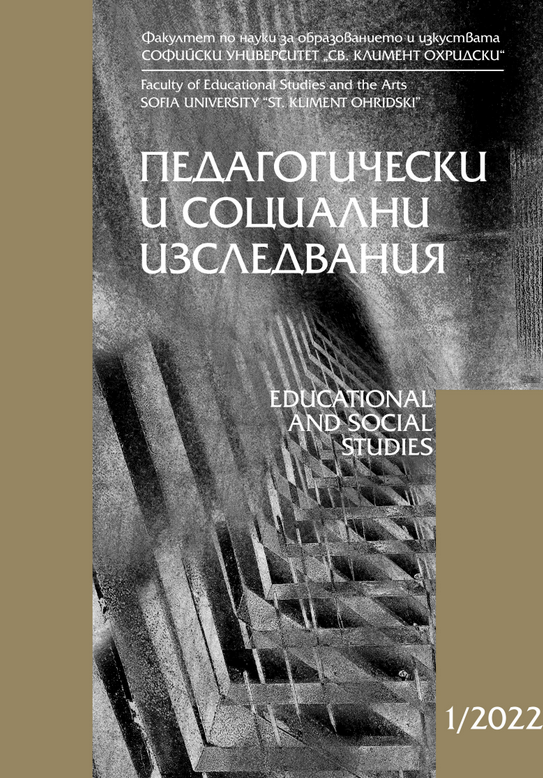Concepts about nature in primary school students
Keywords:
concepts of nature, mental operations, environmental cultureAbstract
Human beongs are intrinsically connected with nature. Since the very beginning to the present, none of human basic needs had been satisfied without the use of natural resources. Pollution of air, soil and water today are enormous and poses an imminent threat to human life, posing new challenges to humanity. Among the concepts that have emerged concerning the problems of environmental protection and restoration, environmentalism has found wide resonance in education at various levels. At the primary level of education, students need to understand the concepts related to ecology, mastering them correctly, thoroughly and permanently. In this regard, mental operations and stimuli from the learning process and the overall external environment are essential. On the basis of the ecological concepts through effective environmental education to develop environmentally friendly behaviour and environmentally friendly lifestyle, to form an ecological culture.
References:
Desev, L. Dictionary of Psychology. 1979, p. 121.
Desev, L. Dictionary of Psychology. 1999, p. 491.
Hristova, S., Boycheva, V. Ecology and Education. Sofia, 1997.
Kraig, G. Developmental Psychology. "Peter", 2000, p. 475.
Krasnykh, V.V. Ethnopsycholithology and linguoculturology: a course of lectures. -M.: ITDGK "Gnosis", 2002, p. 12, 284.
Kubryakova, E. S., Demyankov, V. Z., Pankarts, Yu .G., Luzgina, L. G. A short dictionary of cognitive terms. - M.: Publishing house of Moscow State University. M.V. Lomonosov, 1996, p. 30-96.
Mircheva, I., Dzambazova, E. Touching nature. 2006.
Petrova, V. 12 interactive methods in teaching in the Homeland, Surrounding World, Man and Nature, Man and Society in I - IV grade. Stara Zagora, 2009.
Petrova, V. Children's Concepts of Nature. St. Zagora, 2005.
Piryov, G., Desev, L. Pedagogical Psychology. Second Edition, 1979, p. 121-129.
Piryov, G. The Child "Veda Slavena". Sofia, 1998.
Piryov, G. Pedagogical Psychology. Sofia, 1956, p. 67-83.
Piryov, G. Pedagogical Psychology. S., 1971, 110-111.
Piaget, J. Psychology of the intellect. Logic and psychology. M. "Enlightenment", 1992, p.127.
Slavyanova, L. Scientific Papers of the University of Ruse, 2016, Volume 55, Series 11.
Stamatova, R. Ecological education of students from I to IV grade "From theory to practice". Burgas, 2007.
Stamatova, R. Entertaining ecological aspects in the education of the Homeland, Surrounding world, Man and nature I-IV class. Burgas, 2007.
Tolstoy, N. I. Selected Works. T. I. Slavic lexicology and semasiology. Moscow, 1997, p.312.
Vasileva, E. The Child in Primary School. Sofia, 2002.
Vasileva, E. The Modern Primary School-Reality and Challenges. Sofia, 2004.
Vasileva, E. The Lesson in Primary School. Sofia, 2004.
Toman, U. (2018). An investigation into the learning of ecological concepts. European Journal of Educational Research, 7(3), 631-628. doi: 10.12973/eu-jer.7.3.631.
Johnson, B. and Činčera, J. University of Arizona, Tucson, Arizona, USA, b. Masaryk University, Brno, Czech Republic; Studies in Educational Evaluation.





